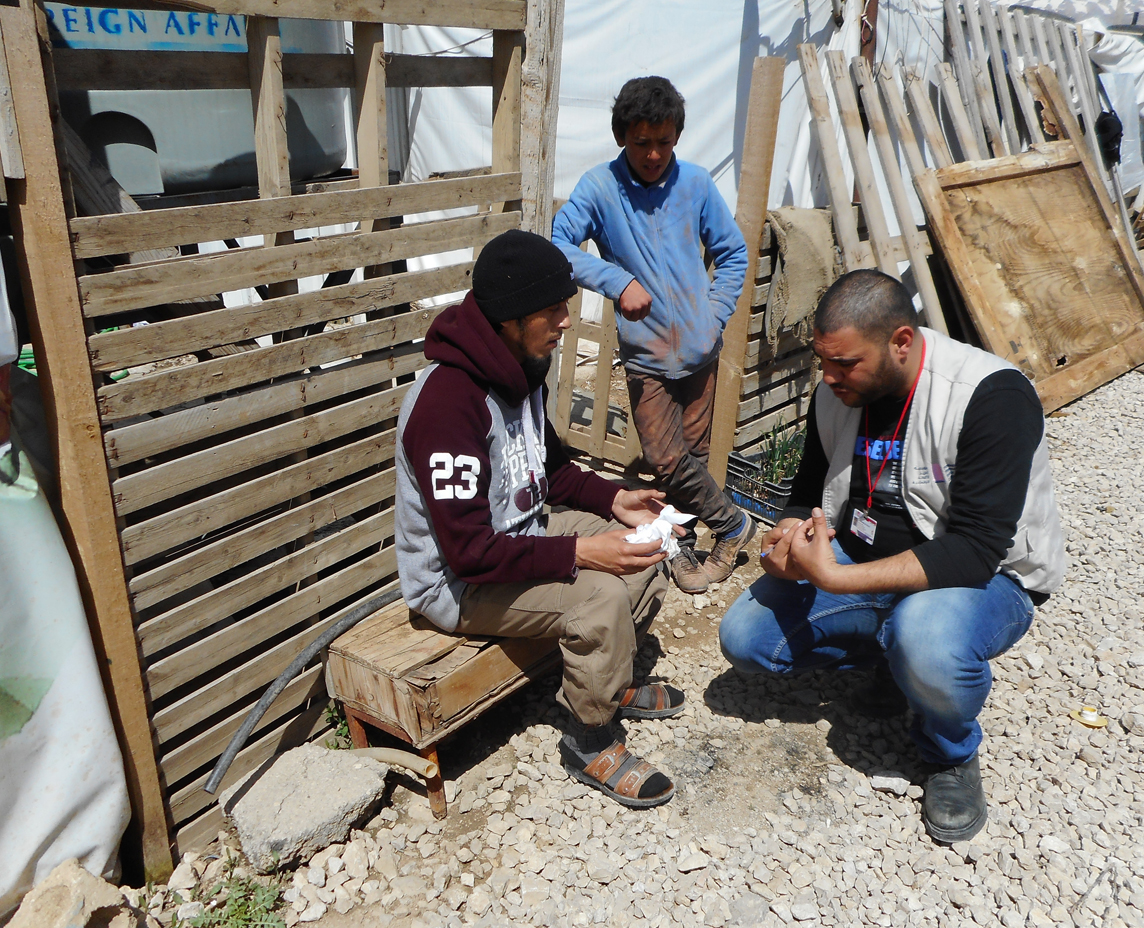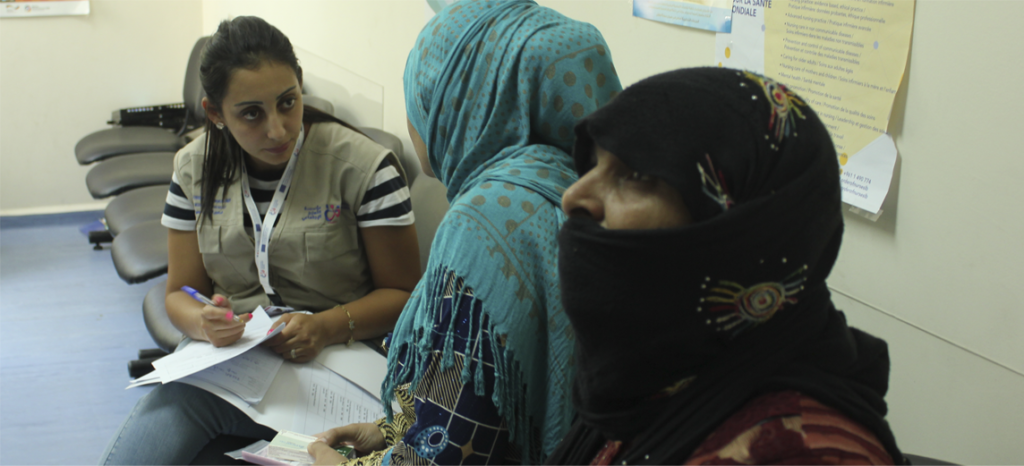For 24 months the Consortium formed by International Medical Corps UK (IMC) as a leader, with the partners Première Urgence-Aide Médicale Internationale (PU-AMI) and the Social Promotion Foundation will work to improve access to quality services in primary health care, community health and mental health services for Syrian refugees and other vulnerable populations in Beirut and Mount Lebanon, Akkar, Tripoli, Bekaa and the South. Close coordination and consultation with the Lebanese Ministry of Public Health (MoPH) will be essential for the success of the action.
The project is financed by the Directorate- General of Neighbourhood and Enlargement Negotiations (DG NEAR) of the European Commission and is based on the general objective of The European Union Regional Trust Fund in Response to the Syrian Crisis (“The MADAD Fund”) to respond to the “needs of refugees from Syria in neighbouring countries, as well as of the communities hosting the refugees and their administrations, in particular as regards to resilience and early recovery”.
The Social Promotion Foundation is responsible for the specific objective, focused on improving the welfare of Syrian refugees and vulnerable population through the provision of mental health services and psychosocial support (MHPSS) in Zahle (Bekaa Valley).
The Foundation team consists of: 1 Country Director, 1 Project Coordinator, 1 Program Development and Quality Manager, 1 Technical Supervisor at MHPSS, 1 Human Resources Manager and 1 Team Leader. In addition, the following experts will be recruited: 1 Psychiatrist, 1 Psychotherapist, 2 Nurses, 1 Senior Case Manager, 3 Case Managers, 1 Responsible for Logistics and Head of SECPRO, 1 Financial Manager, 1 Accountant, 1 Responsible for Monitoring and Evaluation, 1 Responsible of the Information Consolidation and 1-2 Driver (s).
The main activities of Social Promotion Foundation are the following:
- Provide MHPSS services through the Case Managers teams: Establishing a Capacity Building Plan, a Referral Program (30% of the beneficiaries), an Assistance Program for medium and severe cases of Mental Health ( 70% of the beneficiaries), both in the Zahle Centre and through the Outreach Team. IMC will provide the Community Mental Health Team of Social Promotion Foundation with psychotropic medication for free distribution.
- Training for frontline staff: Provision of 12 one-day trainings in Crisis Management in Mental Health (Identification, care and referral) for 210 Frontliners, Social Workers and Case Managers; 12 Psychological First Aid training (PFA) for Humanitarian Personnel (180 participants); and a 10-day training by IMC for the Social Promotion staff in charge of the Community Mental Health Program on Case Management.
- Awareness-raising in mental health: Awareness-raising sessions carried out by Social Promotion Foundation in coordination with IMC.
- Community-based support groups: The Case Managers of Social Promotion Foundation will organise support sessions for the beneficiaries, organised in small groups, including both minors and their tutors, on the topic of resilience, management, overcoming stress, self-esteem and well-being, etc.
The project, which is part of the intervention of the Foundation, will have an estimated total of 448,630 beneficiaries during 24 months, including refugees (at least 50% of the total beneficiaries) and vulnerable Lebanese. The proposed intervention, designed to complement the existing efforts of other humanitarian actors, is based on the following priority needs: Primary Health Care, Disseminate, and Education in Community Health; Mental Health and Psychosocial Support (MHPSS). These needs have been identified through the extensive experience of the three consortium members in response to the crisis in Syria, and are informed by the 2017-2020 Lebanon Crisis Response Plan.






